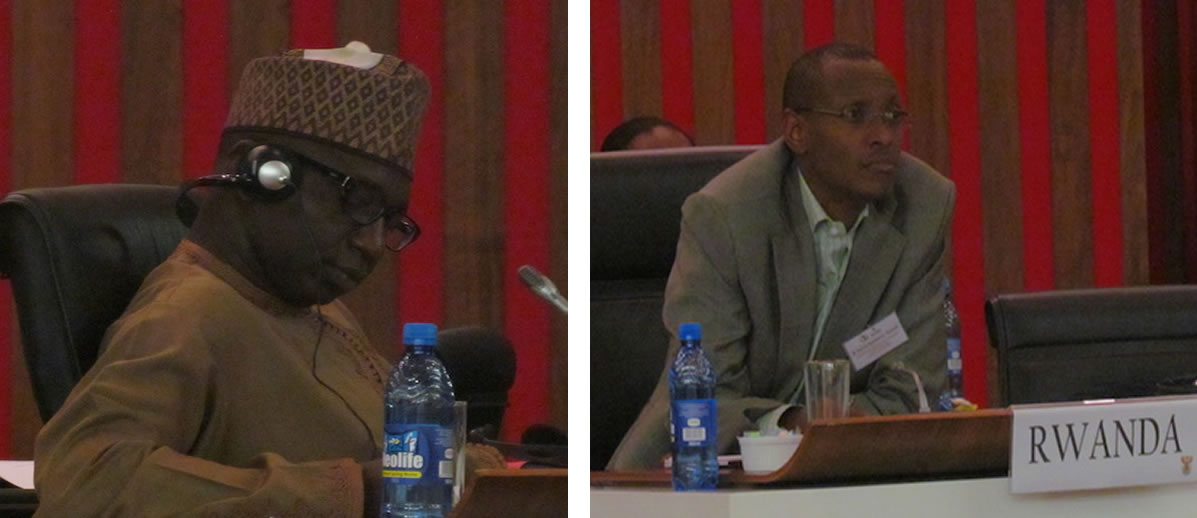Regional Infrastructure projects need to be championed by African leaders

Political determination and sound coordination between countries that are implementing regional infrastructure projects is a key success factor for regional development, NEPAD Chief Executive Officer Dr Mayaki says.
Dr Mayaki spoke yesterday at the Department of International Relations and Cooperation (DIRCO) Offices in Pretoria at a technical meeting on the Presidential Infrastructure Championship Initiative (PICI).
The aim of the meeting was to take stock of progress made in the implementation of the 8 PICI projects, which are championed by African Heads of State and Government of South Africa, Algeria, Benin, Nigeria, Republic of Congo, Rwanda, Senegal and Egypt.
In his opening remarks, Director General of South Africa’s Department of Planning, Monitoring and Evaluation, Dr Sean Phillips highlighted Africa’s potential as a continent of opportunities and the need to fast-track the implementation of infrastructure projects so as to attract investment.
Dr John Tambi, NEPAD Transport Infrastructure Expert and Coordinator of PICI said: “The role of champions is to provide visibility for the projects, unblock the “bottlenecks”, coordinate resource mobilisation for the projects and, of course, ensure that the project is implemented.”

Dr John Tambi

Mr Aminu Diko of Nigeria presenting on the Trans-Saharan Gas pipeline and Mr Patrick Nyirishema of Rwanda presenting on the ICT Broad Band Optic Fibre projects
The meeting provided an opportunity for country focal points to present on the respective projects in their countries and the status thereof. The delegates were briefed on the projects ranging from the Optic Fibre from Algeria to Nigeria, to the Dakar-Ndjamena-Djibouti Road to the proposed Gas pipeline earmarked for Nigeria to Algeria.
Status updates were also made on projects already at preparation and implementation phase such as the revitalisation of the Central Corridor in Tanzania and the revamping of the Bulaway-Beitbridge road.
Deliberations will continue today in the scheduled Ministerial working group taking place at DIRCO.
The Trans-Saharan Gas Pipeline, championed by the President of Nigeria, is a 4,401Km of natural gas pipeline from Nigeria to Algeria via the Republic of Niger. From Nigeria to the Republic of Niger border (1037 Km), from the Republic of Niger to Algeria (841 Km), within Algeria (2303 Km) and from Algeria to Spain (220 Km).
The Fibre Optic Network linking neighbouring countries is spearheaded by the President of Rwanda to unblock and facilitate any political bottlenecks affecting the speedy implementation of ICT Broadband and Fibre optic projects within the neighbouring states and if practical in any region of the continent.
The Dakar-Djibouti Road and Rail project aims to connect Senegal, Mali, Burkina Faso, Niger, Nigeria, Cameroon, Chad, Sudan, Ethiopia and Djibouti, ECOWAS, ECCAS, COMESA and IGAD through road railway projects with a total length of 8,715Km. The project is championed by the President of Senegal.
To see more information on these projects, log onto the PIDA Virtual Information Centre at www.au-pida.org
